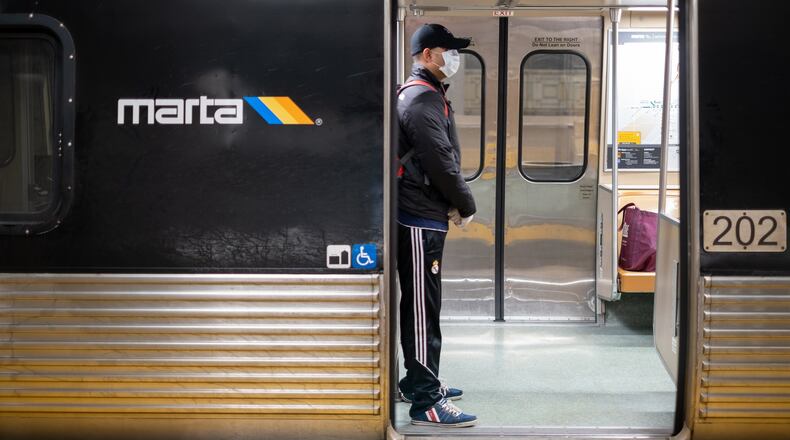As COVID-19 is upending life in our community, MARTA is changing the way we operate to best protect our employees and customers while still providing essential transit services. Although this ongoing public health crisis has compounded the issue of intractable homelessness in metro Atlanta, our transit system is working urgently with other stakeholders in rising to the challenge.
Factors such as escalating housing costs, growing substance abuse, and a lack of healthcare and supportive services were already exacerbating the difficulties unsheltered individuals encounter in getting help. Amid a pandemic, MARTA and other major transit systems nationwide are experiencing an uptick of individuals who are seeking refuge in rail stations and riding trains with no specific destination. Wary of COVID-19, customers have complained that this scenario makes them feel uneasy and unsafe.
The problem has become increasingly acute at Hartsfield-Jackson Atlanta International Airport where MARTA provides direct rail service. Until recently, it was commonplace for unsheltered individuals to ride MARTA throughout the day and then congregate overnight in the airport’s passenger atrium, creating similar concerns for travelers and employees.
MARTA will not tolerate aggressive panhandling, fare evasion or any criminal or disruptive behavior regardless of who is involved. Being homeless, however, is no crime. Our police officers will not treat it that way by routinely arresting people because they may have nowhere else to go.
It is clear there are no quick or easy answers. MARTA is not responsible for causing homelessness, nor can we fix it on our own. Instead, we are working collaboratively to find solutions that are consistent with our core mission and compatible with our values as an agency serving the greater good of our region.
Before COVID-19 hit, MARTA was partnering with the City of Atlanta, airport officials, the United Way of Greater Atlanta’s Regional Commission on Homelessness (RCOH), Partners for Home and other civic organizations determined to improve and expand access to affordable housing and other services for the unsheltered.
MARTA has also remained connected with HOPE Atlanta, the airport’s homelessness resource contractor, to conduct direct outreach, assessments, and provide referrals for unsheltered individuals. Since April, MARTA and HOPE have reached up to 20 individuals a night. Money from the City of Atlanta and local philanthropic organizations has been used to secure 255 hotel beds for homeless persons to contain the spread of the virus, offer medical treatment, and track their progress. In a short time, dozens of people have been engaged or gotten much-needed assistance because of these efforts.
In addition, MARTA is currently working on a longer-term plan to create dedicated outreach teams comprised of our employees and social service workers. The MARTA Hope teams would be trained to effectively and respectfully engage unsheltered individuals and be equipped with the appropriate tools such as the Homeless Management Information System, an information technology platform for collecting granular data on the provision of housing and other services.
As MARTA forges ahead, we remain mindful of the barriers – including distrust and fear – that may prevent unsheltered individuals from readily accessing available resources. This is a diverse population with differing needs. Establishing rapport and effective communication is a time-intensive process that requires patience and persistence.
Despite the obstacles, MARTA remains committed to working with all our partners to address the needs of the region’s unsheltered population with a sense of compassion while continuing to run a safe and secure transit system in the era of COVID-19, and beyond.
Jeffrey A. Parker is MARTA’s general manager and CEO.
About the Author
Keep Reading
The Latest
Featured


